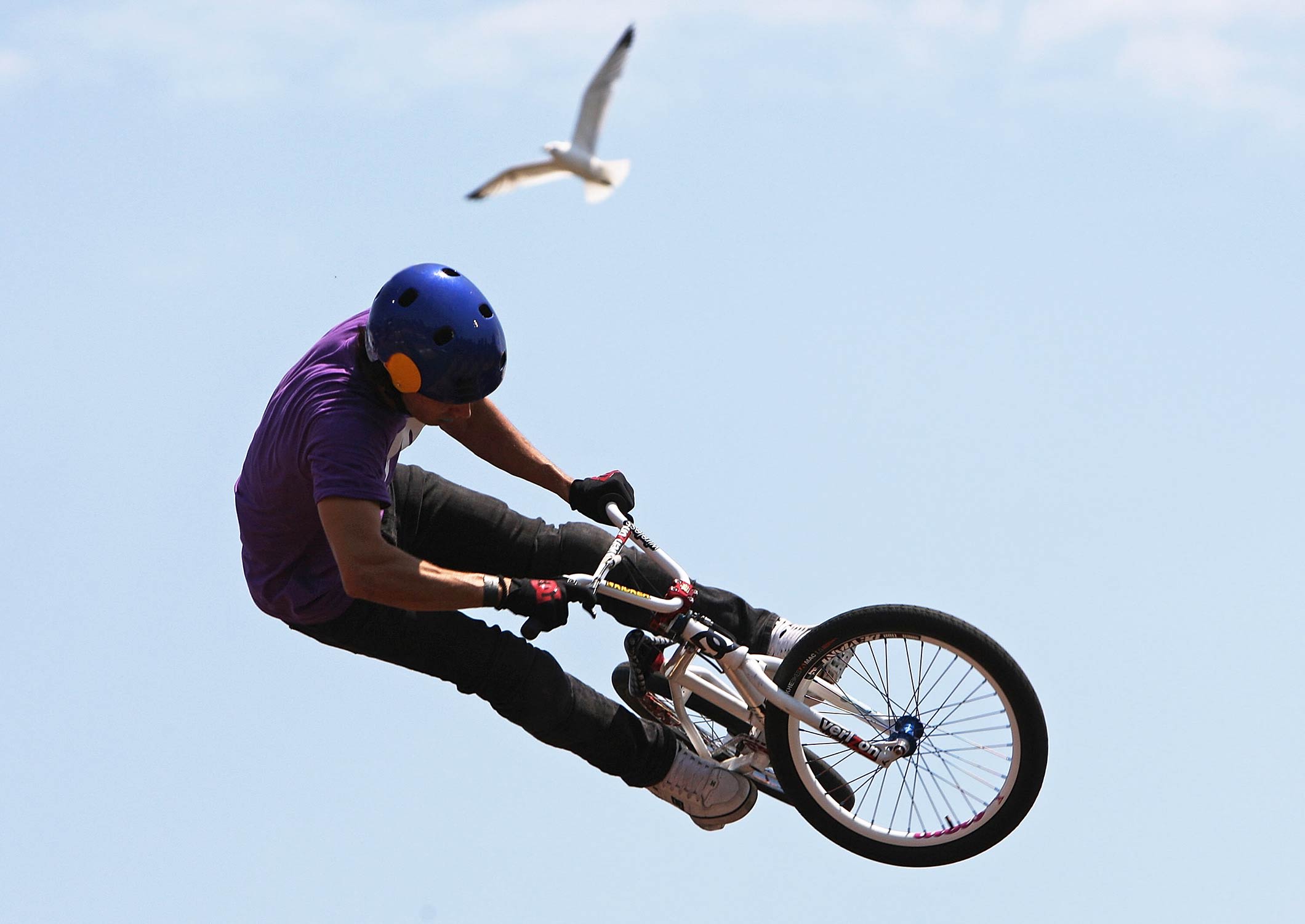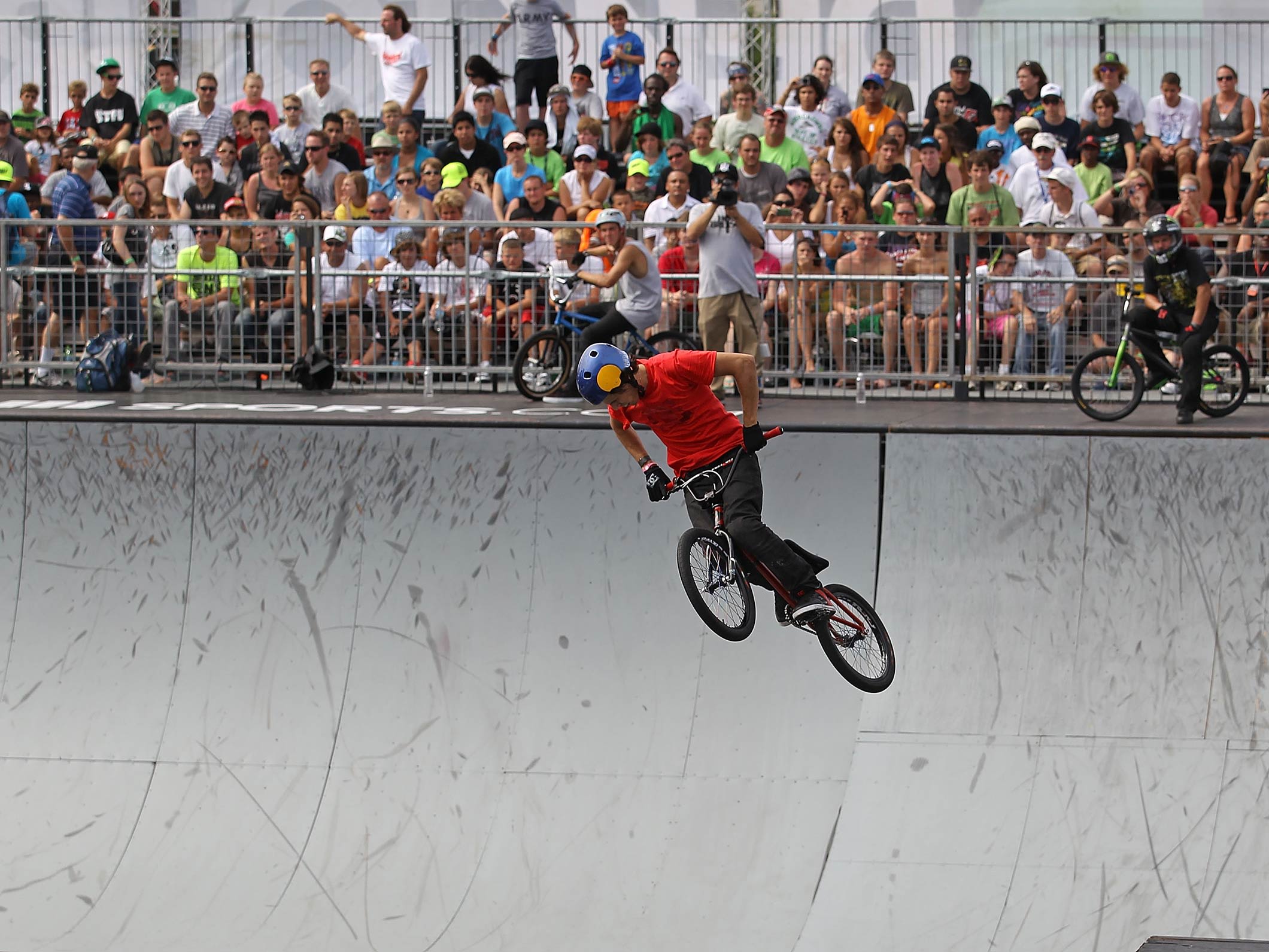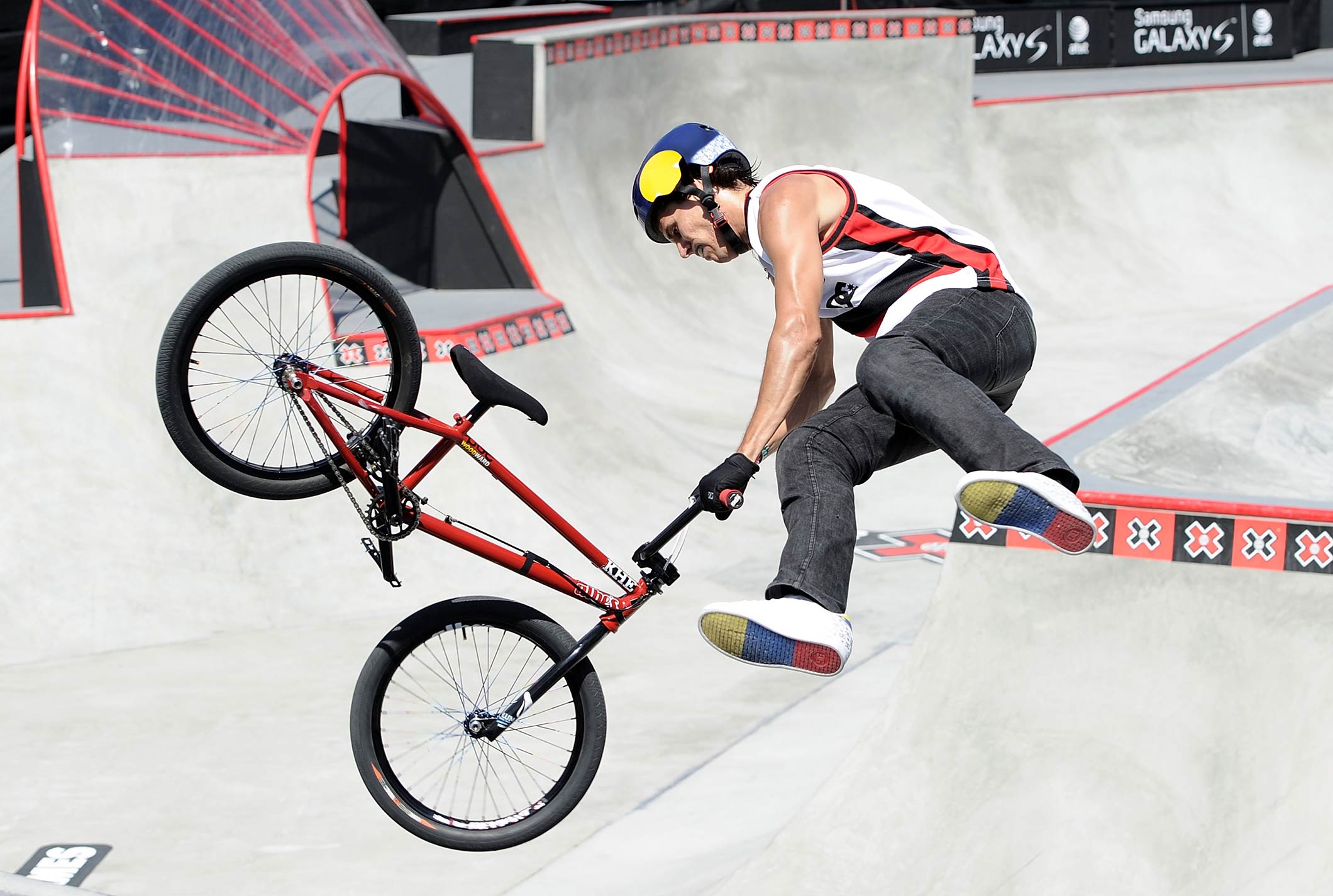BMX freestyle will bring a “fresh look” to the Olympic Games Tokyo 2020
The addition of BMX freestyle park to the programme for the Olympic Games Tokyo 2020 completes the event’s rise from the streets to the top table of international sport. BMX superstar Daniel Dhers says Olympic audiences can expect something totally different.
Component ID : {F01B6FA2-CD3D-44B0-8B53-D803190630AC} / Component Path : /sitecore/content/Home/Games/Summer Games/Summer/Tokyo 2020/Tokyo 2020 right block promo BMX freestyle park has come a long way in a short time. The first fully-fledged UCI World Cup, run by the Union Cycliste Internationale (UCI) in collaboration with the International Extreme Sports Festival (FISE), only took place in 2016. Before being featured at Tokyo 2020, the discipline will be on display on the Olympic stage at the Youth Olympic Games (YOG) Buenos Aires 2018. An exciting opportunity for some of the young riders to prepare for Tokyo 2020.
“It’s going to be huge for our sport,” Dhers said of the recent decision to include the event in the Tokyo 2020 Games. “It’s definitely going to help the top riders and it’s also going to show the world BMX freestyle.”
There is a widespread feeling that the audiences are going to like what they see. The event is an adrenaline-fuelled mix of outrageous tricks and jumps, taking place over a series of ramps and large obstacles, all set up within a 30mx50m park. Athletes complete two one-minute runs each, looking to impress judges with the difficulty, originality, style, flow, risk, height and execution of their tricks.
Dhers, who at 32-years old is a godfather-like figure in freestyle, is certain that appearing on the Olympic stage will bring a positive change in the wider perception of his sport.
When people watch our sport and see how much fun we have and what we do, it’s going to be good for the Olympics DANIEL DHERS - DANIEL DHERS
“You see kids and they are like, ‘Hey man, my parents won’t support me, they think I am just getting in trouble with my bike’ – but once we are in the Olympics that mentality will slowly start changing,” he explained.
The 2014 FISE World Series champion is equally adamant that the benefits will travel both ways, with BMX freestyle having much to offer the Games.
“Yes it’s a competition, but it’s not all about the rulebook,” Dhers said. “When people watch our sport and see how much fun we have and what we do, it’s going to be good for the Olympics, it will give it a fresh look.”

Dhers has watched riders adapt impressively to the competitive side of the sport, which rose to prominence long after he helped set the scene in the late 1990s and early 2000s. But ultimately, this event retains the youthful spontaneity, unpredictability and jaw-dropping skills that attracted athletes to it in the first place.
Despite the pace of BMX freestyle’s ascent up the sporting ladder, there appears to be a clear readiness for the next step. Every rider Dhers knows posted enthusiastic reactions across social media to the news of its addition to the Tokyo 2020 Games programme.
“Our sport has grown beyond just trying to keep it underground,” Dhers said.

The UCI and the FISE have been key in managing freestyle’s transition, and crucially for the riders, they did this while keeping the sport’s integrity intact.
“The first time we sat down with the UCI, what I liked was the opening statement; ‘We are not trying to change the sport, we like it how it is, we just want to take it to the next level, but we don’t want to take the spirit out the sport’,” Dhers explained.
Dhers has played a significant role in this. Grabbing the initiative, the Venezuelan organised his fellow riders and became their de facto spokesperson.
BMX freestyle has successfully managed the tricky task of entering the global consciousness without losing its wildly attractive independent streak.

And now Dhers’ focus is on the life-changing opportunities in front of him.
“The level of tricks will get elevated because now you have a bigger incentive and you will have a lot more resources available,” he said. “I work out and do a bit of psychological reading but I don’t have coaches for any of it, I think that will change.”
All of which will lead, he hopes, to one outcome.
If I end up winning the Olympic gold, it would be for one of the smallest countries in one of the smallest sports just introduced into the Olympics - that would be insane DANIEL DHERS - DANIEL DHERS
“If I end up winning the Olympic gold, it would be for one of the smallest countries in one of the smallest sports just introduced into the Olympics - that would be insane,” Dhers said with a grin.